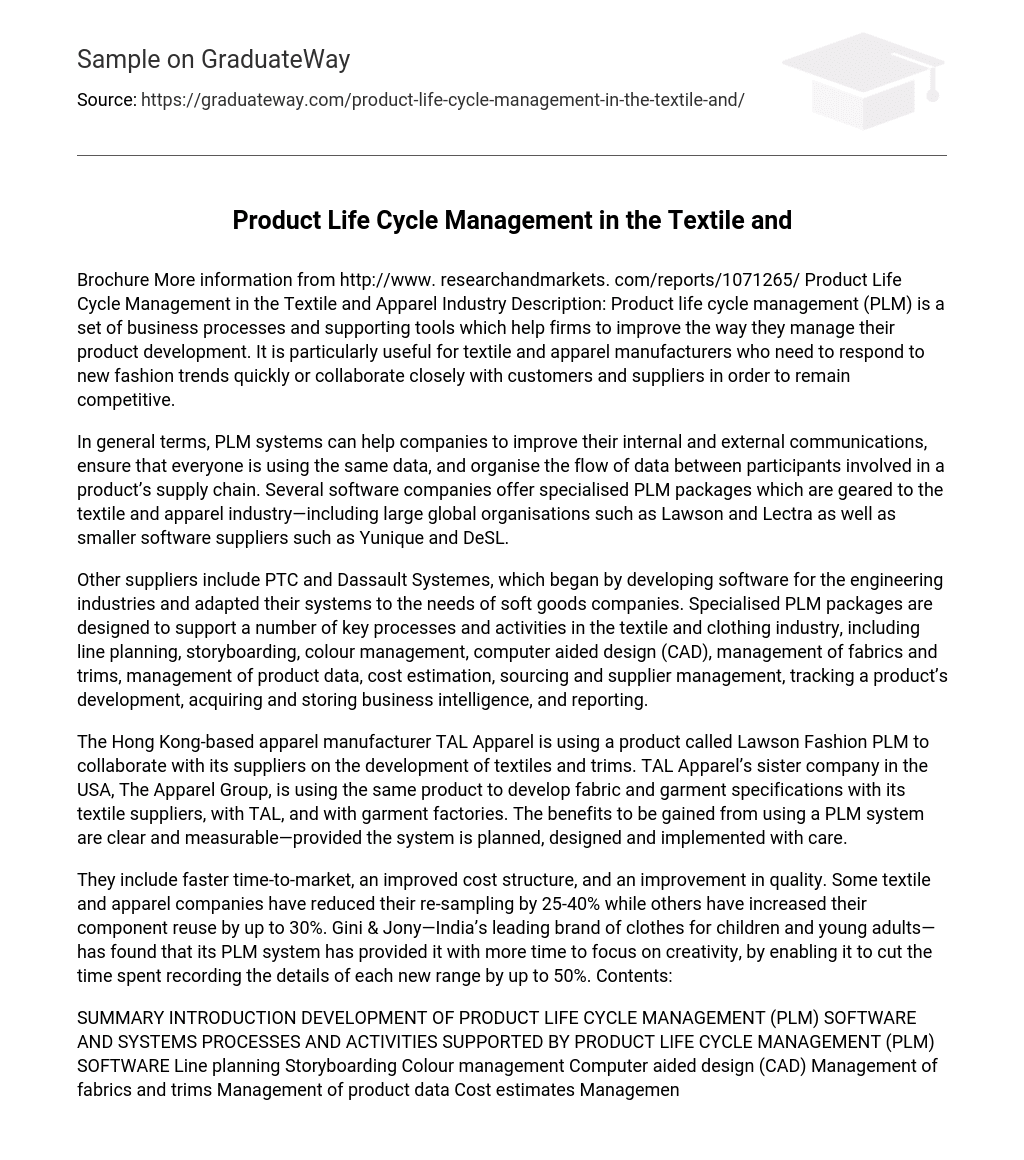Product life cycle management is a set of business processes and supporting tools which help firms to improve the way they manage their product development. It is particularly useful for textile and apparel manufacturers who need to respond to new fashion trends quickly or collaborate closely with customers and suppliers in order to remain competitive.
In general terms, PLM systems can help companies to improve their internal and external communications, ensure that everyone is using the same data, and organise the flow of data between participants involved in a product’s supply chain. Several software companies offer specialised PLM packages which are geared to the textile and apparel industry—including large global organisations such as Lawson and Lectra as well as smaller software suppliers such as Yunique and DeSL.
Other suppliers include PTC and Dassault Systemes, which began by developing software for the engineering industries and adapted their systems to the needs of soft goods companies. Specialised PLM packages are designed to support a number of key processes and activities in the textile and clothing industry, including line planning, storyboarding, colour management, computer aided design (CAD), management of fabrics and trims, management of product data, cost estimation, sourcing and supplier management, tracking a product’s development, acquiring and storing business intelligence, and reporting.
The Hong Kong-based apparel manufacturer TAL Apparel is using a product called Lawson Fashion PLM to collaborate with its suppliers on the development of textiles and trims. TAL Apparel’s sister company in the USA, The Apparel Group, is using the same product to develop fabric and garment specifications with its textile suppliers, with TAL, and with garment factories. The benefits to be gained from using a PLM system are clear and measurable—provided the system is planned, designed and implemented with care.
They include faster time-to-market, an improved cost structure, and an improvement in quality. Some textile and apparel companies have reduced their re-sampling by 25-40% while others have increased their component reuse by up to 30%. Gini & Jony—India’s leading brand of clothes for children and young adults—has found that its PLM system has provided it with more time to focus on creativity, by enabling it to cut the time spent recording the details of each new range by up to 50%.





